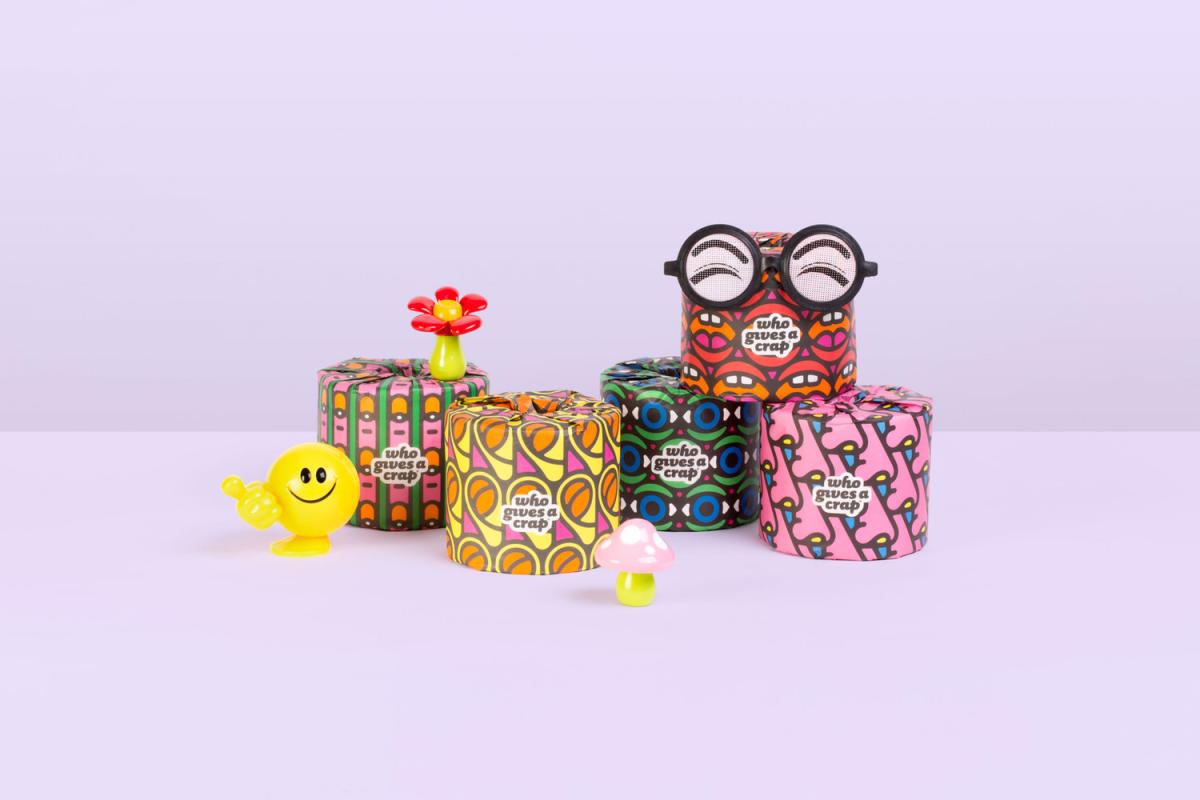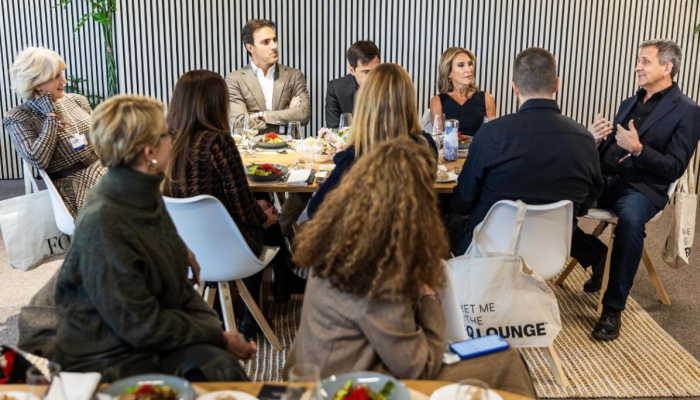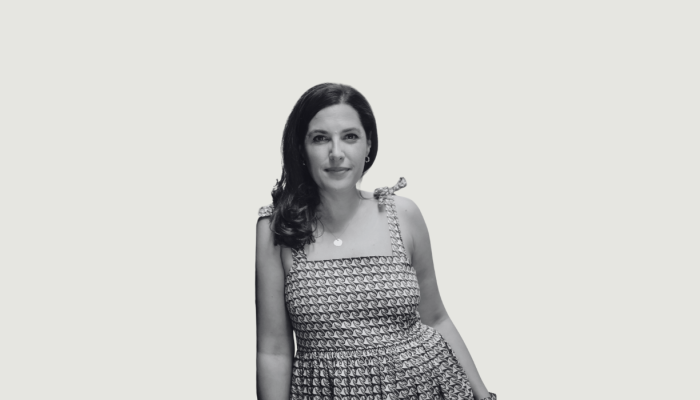Who Gives A Crap is an ‘irreverent’ toilet paper company from Australia, making environmentally friendly products from either recycled paper or bamboo. Selling direct-to-consumer, it donates 50% of its profits to build toilets to help combat diarrhoea-related disease in the developing world. Co-founder and CEO Simon Griffiths famously sat on a toilet for 50 consecutive hours to raise $50k for its crowdfunding campaign in 2012 before launching in Australia the following year and expanding sales to the UK and US in 2017. We talk to Simon to find out why irreverence is such an important part of the brand's identity and where it’s used most effectively within the customer experience.
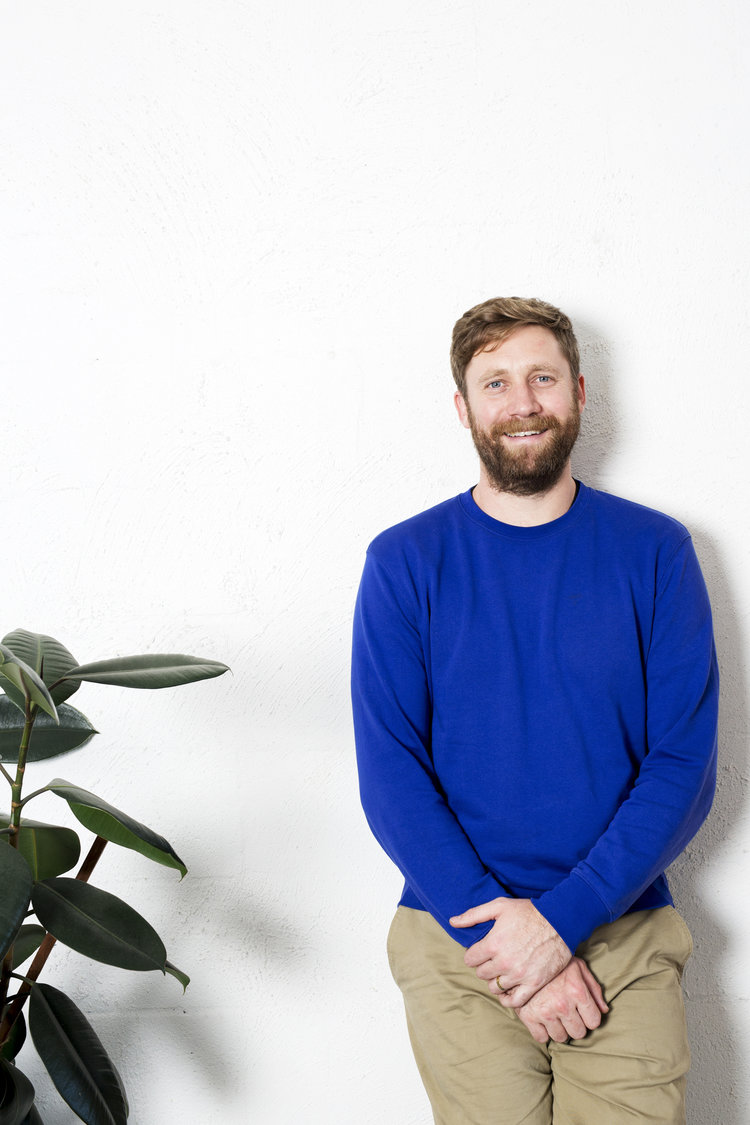
Where did that sense of irreverence come from and why is it important?
I guess we realised that we were selling one of the most boring products in the world and talking about a really serious issue that was the elephant in the room when it came to global development - while it’s pretty easy and great to talk about giving access to water for the first time at a dinner party, it’s much harder to talk about poop and the challenges of diarrhoea related disease! As a result, sanitation was always this big problem that just wasn’t getting much attention or being solved very quickly. Roughly 40% of the world’s population don’t have access to a toilet. The bad stuff ends up in water which is one of the reasons why diarrhoea-related disease is second largest killer of children under the age of five. To me, that’s kind of bonkers, because we know what the solution is - it’s really straightforward… toilets!
“No one was actually talking about the fact that this is toilet paper and it’s there to wipe your butt.”
We saw that there was an opportunity to break through the taboo nature of the sanitation issue, and to talk about what the product that we are selling is actually for - which is what no other toilet paper company does. They talk about puppies, and pillows and feathers, but no one actually talks about the fact that this is toilet paper and that it’s there to wipe your butt. That’s literally why the product exists.
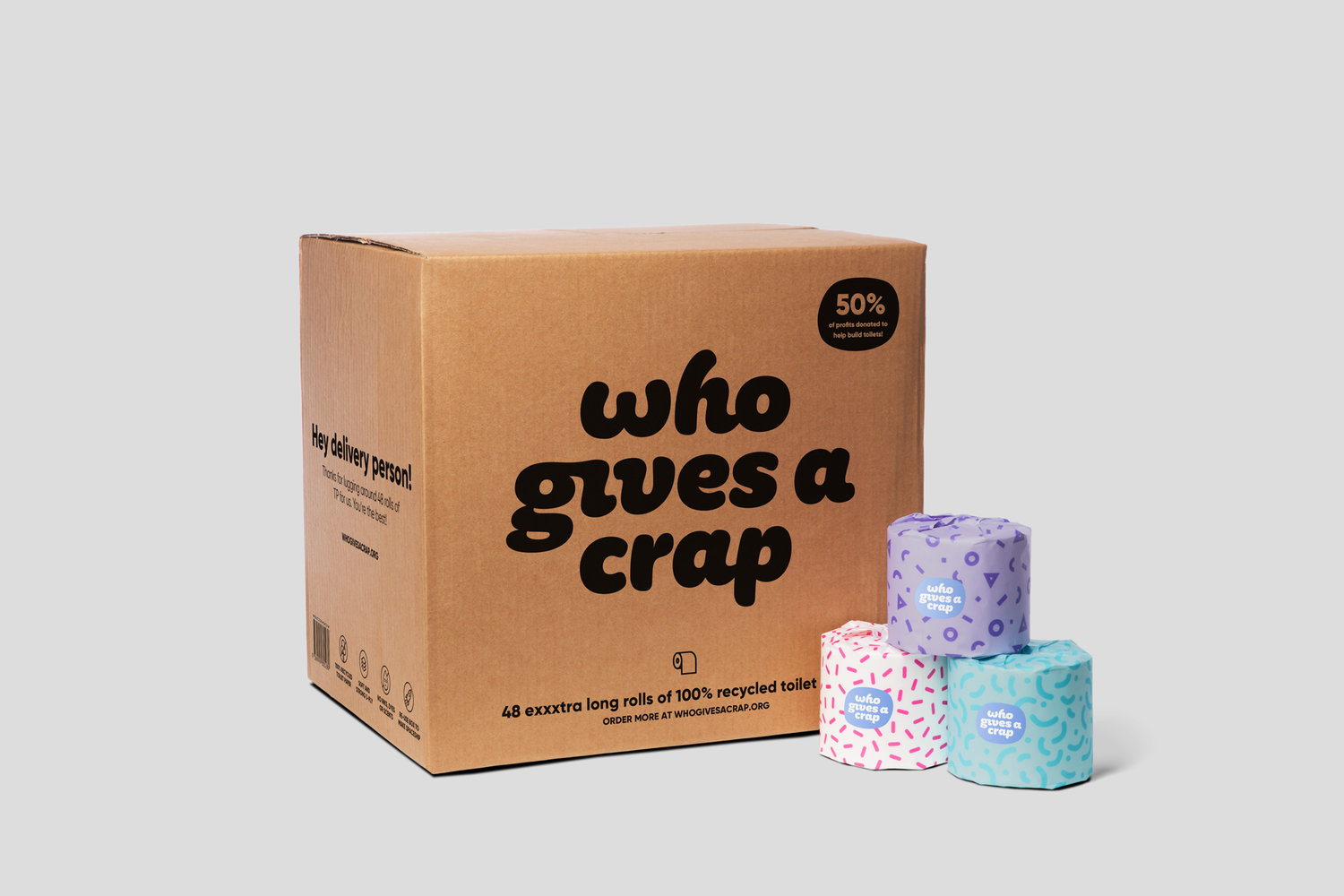
So there was an opportunity to be irreverent in a way that made it fun - we decided to make this boring product and this serious issue part of a fun conversation that was actually easy to talk to other people about for the first time. That is the beauty of the product/brand/cause piece that comes together with Who Gives A Crap. I think being an irreverent toilet paper company wouldn’t work without the mission. It would just come across as a bit gross and icky, but when you’ve got the mission piece coming into your product offering, it really gives a strong backbone to the brand which allows you to be irreverent.
For us, it’s also treading a fine line of not being dirty. We say that the dirtiest we’ll ever be is in our brand name. That’s the dirtiest thing we’ll ever say, basically. So really working out how far to push the irreverence and where to insert it has been key.
How do you think about where to insert that irreverence and where not to?
Our physical product, toilet paper, doesn’t really need to be innovated any further. People don’t need a five-ply or an eight-ply toilet paper. So, we could sell a group of products that does a good job, but all of the innovation could happen around the customer experience. That means delivering to people’s houses, packaging the rolls differently to make them more fun and more shareable, and putting copy on the product that you actually want to read. We have really good customer service and a money back guarantee. It sounds small, but all of that stuff adds up and no one had ever done that before.
“If we can make that experience seamless and frictionless, then we can put the irreverence around the edges”
To make it work, the customer experience has to be seamless. When you’re on our site, you want to be able to get to our product and go through to checkout without being bombarded with irreverence. But if we can make our customer experience really seamless and frictionless, then we can put the irreverence around the edges of it and allow people to discover it at their own pace. Irreverence is an important part of who we are, but it’s also about using irreverence in the right place.
Where does this irreverence play out in the customer experience?
Emergency rolls are a great example. When you get to the bottom of one of our boxes you’ll discover these bright red or gold coloured rolls that are the emergency rolls. They say, ‘Emergency! Don’t forget to order toilet paper because you’re about to run out!’. It’s just that moment of going through 45 rolls in a box before you eventually hit these emergency rolls at the bottom, which is the Easter egg that we’ve been waiting for you to find.
Likewise, when you open a box for the first time, it’s quite a fun, colourful, lively experience. And that’s not normally what happens when you open up a pack of toilet paper - it’s often demure packaging or there’s plastic in there. So we try to make that a really fun, lively moment that people want to share with someone else.
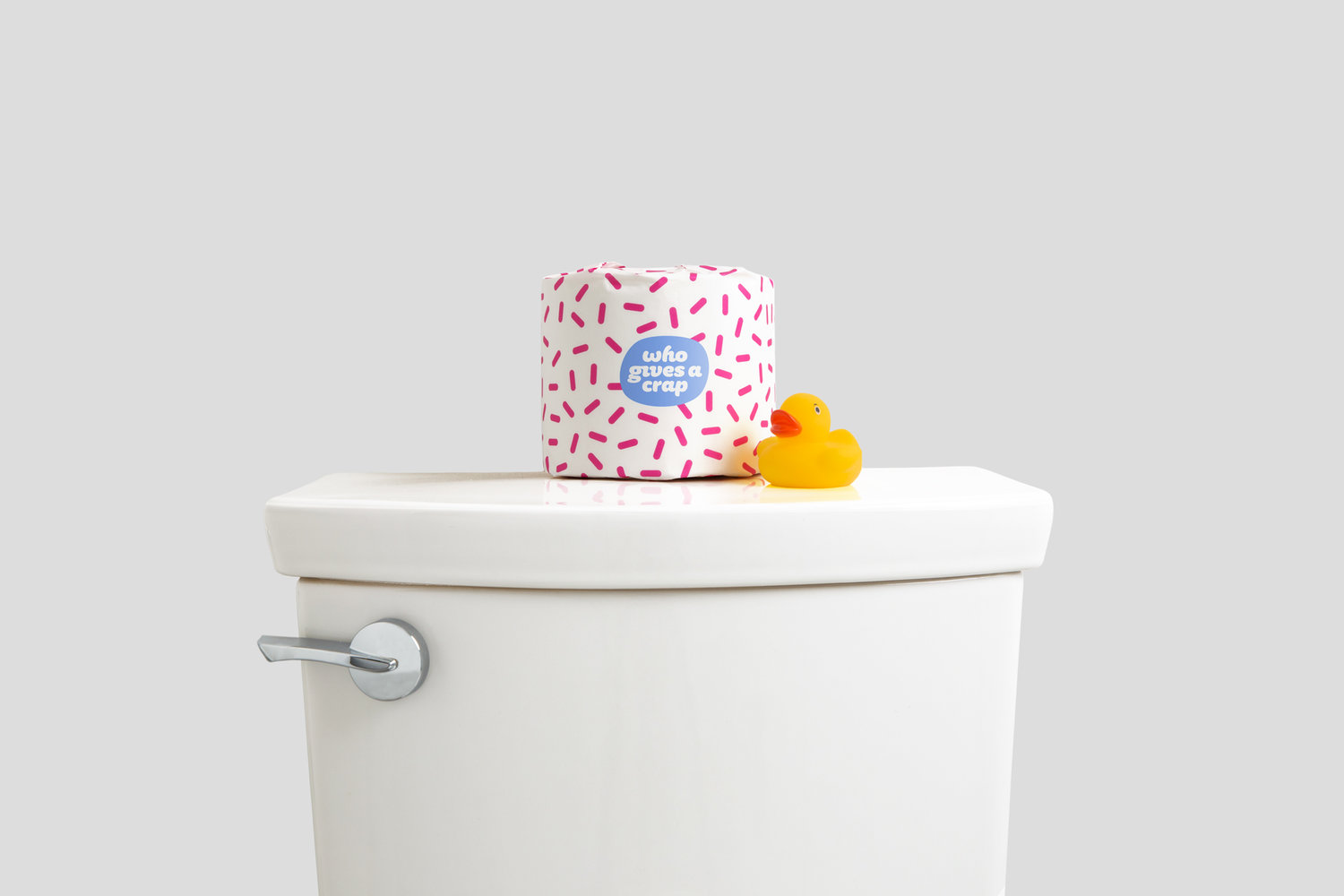
Do you feel there’s been any advantages in building a brand for the DTC model?
When Danny [co-founder] and I sat down to do the initial product designs, we realised that one day we would hopefully be in supermarkets, but initially we’d be selling just online. We had an opportunity to think about our product differently compared to if we were selling in supermarkets. So we took a step back and said, actually, wrapping toilet paper in a plastic 10 or 20 pack doesn’t make sense. How can we make this something that’s a really wonderful customer experience, and use the online piece of what we’re doing to our advantage? Which, at the time was a disadvantage because no one had ever built an online toilet paper business before.
Earlier that day, Danny had walked past one of those barber poles that have the red and white stripes twisting around the pole, and we stacked three rolls on top of each other, and then mocked up that barber pole pattern. And that was the first idea that we ever had around how we could package the rolls.
“We talk about everything being a potential marketing opportunity”
When we sent product out to our customers, we saw that they were sharing tons of photos of it on social media in their bathroom because they thought it was super fun. It really took off in Melbourne, which is our hometown and the heart of hospitality and café culture in Australia. Then we started hearing from people saying, oh, I saw you in this café, or I can’t seem to go to a bathroom where you guys aren’t in there. We realised hospitality bathrooms were an incredible brand moment for us. In the last couple of years we’ve re-jigged how we do our business-to-business selling, really thinking of that as being a potential marketing avenue for us. For example, you’ll find us in the Standard Hotels in the USA.
We talk about everything being a potential marketing opportunity, whether it’s an email receipt which is a love poem, our packaging which can be a box on someone’s doorstep, or our packaging in the bathroom like a mini billboard. If we do our job really well, the packaging will get reused and turned into gift wrapping or something else that people will then give to someone else, and it becomes a new brand moment that lives on well beyond the life of our product.
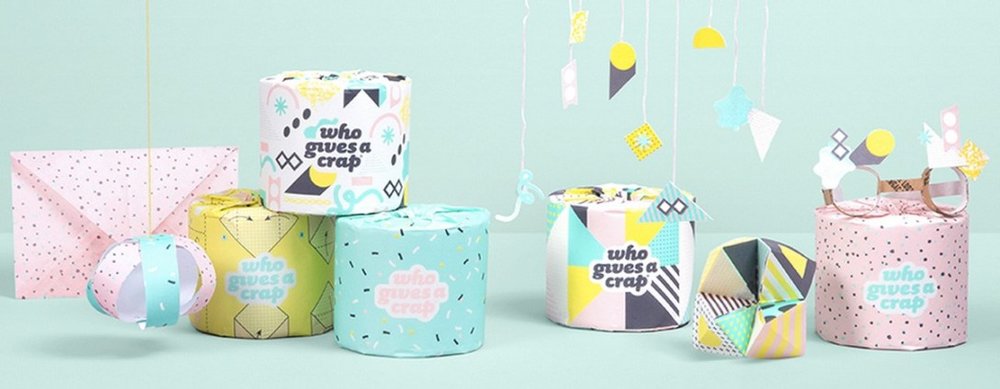
Do you think we’re seeing less irreverent challenger brands today? Has the emphasis on purpose turned brands away from using humour in marketing?
I don’t think so. The UK has traditionally been the home of the irreverent brand, right? Virgin’s a great example of that, again, using stunts for marketing. But then, more recently there’s been Ugly Drinks, who’ve come out with their carbonated water. I guess, in this new, microbrand era, the time and money it takes to create a new brand and start selling something to someone is much less than it ever has been before. In the past maybe you had to be irreverent in order to get cut through, whereas now you can start advertising on social with £100 and a few hours of your time to get things set up and started, and then leverage that to ultimately bubble up to the surface. Whereas, the brands of ten years ago had to use that irreverence to build publicity and word of mouth, that ultimately helped them to be successful. These days there are different ways to be successful compared to what there has been in the past, which means not necessarily less irreverent brands, but we might just be seeing that there’s other brands that are being successful without having to be irreverent.
What results can you share with us in terms of how well you’re doing?
We’ve had really strong growth. We’ve doubled or tripled the business every year, for the six years that we’ve been operating, and donated a little more than £1 million in that time. We’re up to a team of 55 as of today, and that head count is continuing to roughly double each year. We think that we have a responsibility to show that it’s possible to grow this business to scale and generate huge impact at scale, but also generate a financial return for our shareholders. Because if we can do that, we believe we can inspire other entrepreneurs and investors to have a crack at solving some of the other huge social problems that we have in the world with new profit-for-purpose business models.
This piece is by eatbigfish. and first appeared on The Challenger Project's website here
